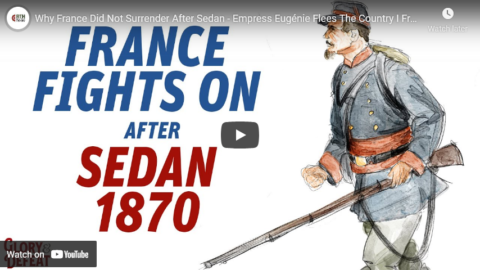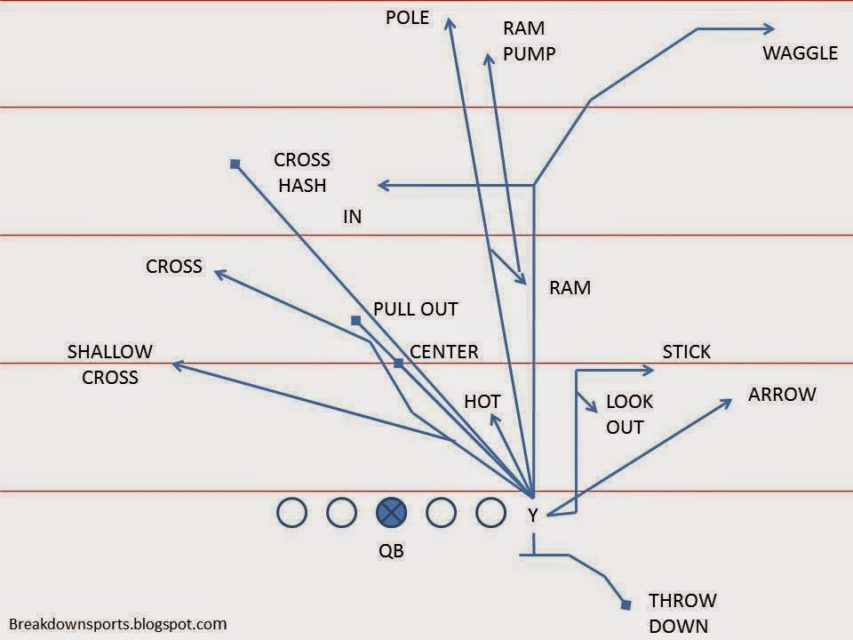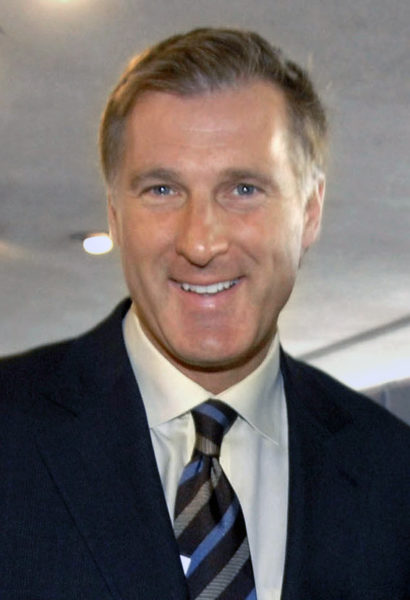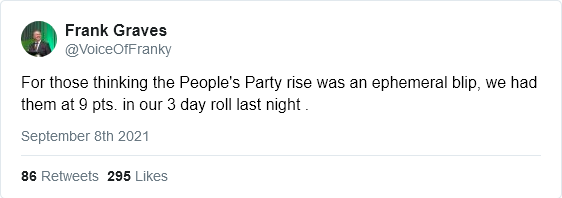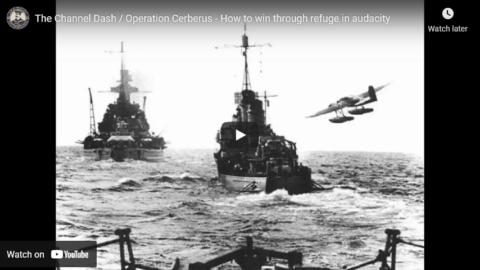realtimehistory
Published 9 Sep 2021Sign up for a free 1 month trial for Skillshare: https://skl.sh/realtimehistory08211
After the French defeat at Sedan, the German states expect peace negotiations. But instead the new French republic declares an early form of “total war” and continues the fight. Meanwhile Empress Eugénie flees the country for Britain.
» THANK YOU TO OUR CO-PRODUCERS
John Ozment
James Darcangelo
Jacob Carter Landt
Thomas Brendan» OUR PODCAST
https://realtimehistory.net/podcast – interviews with historians and background info for the show.» LITERATURE
Arand, Tobias: 1870/71. Der Deutsch-Französische Krieg erzählt in Einzelschicksalen. Hamburg 2018
Arand, Tobias/Bunnenberg, Christian (Hrsg.): Karl Klein. Die Fröschweiler Chronik. Hamburg 2021
Herre, Franz: Eugénie. Kaiserin der Franzosen. München 2000
Howard, Michael: The Franco-Prussian War. London 1961
Milza, Pierre: L’année terrible. La guerre franco-prussienne. Septembre 1870 – mars 1871. Paris 2009» SOURCES
Braun, Lily (Hrsg.): Kriegsbriefe aus den Jahren 1870/71 von Hans v. Kretschman. Berlin 1911
Hérisson, Maurice Graf d’: Journal d’un officier d’ordonannce. Juillet 1870 – Février 1871. Paris 1885
Goncourt, Edmond de: Journal des Goncourt. Memoire de la vie litteraire. 2.1. 1870-1871. Paris 1890
Russell, William Howard: Meine sieben Kriege. Die ersten Reportagen von den Schlachtfeldern des 19. Jahrhunderts. Frankfurt a. M. 2000» OUR STORE
Website: https://realtimehistory.net»CREDITS
Presented by: Jesse Alexander
Written by: Cathérine Pfauth, Prof. Dr. Tobias Arand, Jesse Alexander
Director: Toni Steller & Florian Wittig
Director of Photography: Toni Steller
Sound: Above Zero
Editing: Toni Steller
Motion Design: Philipp Appelt
Mixing, Mastering & Sound Design: http://above-zero.com
Maps: Battlefield Design
Research by: Cathérine Pfauth, Prof. Dr. Tobias Arand
Fact checking: Cathérine Pfauth, Prof. Dr. Tobias ArandChannel Design: Battlefield Design
Contains licensed material by getty images
All rights reserved – Real Time History GmbH 2021
September 10, 2021
Why France Did Not Surrender After Sedan – Empress Eugénie Flees The Country I Franco-Prussian War
Why even highly gifted young quarterbacks rarely succeed as they move toward the NFL
Severian at Rotten Chestnuts looks at the early career life-cycle of football quarterbacks:
At all levels of American football below pro, the “option” is a major facet of the game. This is an offensive play where the quarterback can either run the ball himself, pitch it to another player, or throw it downfield, as he thinks best. It certainly helps if the quarterback is a strong-armed, accurate passer, but the key criterion here is speed. If you get defenders cheating up in order to stop the run, you don’t have to be as strong or accurate with your throws. What matters is that the QB can pass — meaning, he can throw it X yards downfield, within a few yards’ radius of a given spot — not how often he does so. The closer he can get it to the spot, and the further downfield that spot is, the better, but so long as he’s in the vicinity the option system works well.
This starts very, very early in a player’s career. The lower down the skill ladder you go, the more prominent the “option” offense. In “Pop Warner” leagues — kids below age 12, basically — the option pretty much IS the offense, since few kids can throw the ball very far, much less with accuracy. Throwing a football with both velocity and accuracy is extremely difficult, and it doesn’t help that sound throwing mechanics feel brutally unnatural — you know you’re doing it right when it feels like your shoulder is going to pop out of its socket at the very instant your elbow ligaments snap and hit you in the face … which, unfortunately, is exactly what it feels like when you’re doing it wrong, and your shoulder IS about to pop out at the same moment your elbow ligaments snap.
What happens, then, is that kids generally learn how to throw with very poor form … but coaches generally aren’t going to correct them, either because they don’t know the proper mechanics themselves, or because they are focused exclusively on winning games. Who cares if little Kayden, Brayden, or Jayden is going to blow his arm out hucking it like that when he hits high school? That’s Coach Smith’s problem. All that matters now is that he can get it to X spot with radius Y.
Thus the possible career path of any kid who can throw a football reasonably well quickly diverges. If he’s too slow to run the option effectively, his coaches will try to turn him into an “air raid” style quarterback, which means he throws on every play, mechanics be damned, because we need to win now, and what the hell, he can get it there, can’t he? But even the “air raid” style of play is enormously more difficult to coach, because that means you need to be able to coach a whole corps of wide receivers to run a whole bunch of increasingly complex routes. Here, look:
That’s what’s known as a “route tree”, and all of your receivers — five guys, usually, on every play, plus their backups — need to know how to run every one of them, every time. Which means your playbook is going to be huge, because you (theoretically, anyway) need a play for each one of those routes, for each receiver on the field. And obviously your quarterback has to have something going on upstairs, because he needs to memorize five different guys’ routes for every single play, plus audibles and checkdowns (changing any given player’s route, or even the entire play, on the fly), and so on.
I’m sure y’all see where I’m going with this, but it’s important to note that the key selection — whether a given kid shall be an “option” quarterback, or an “air raid” quarterback — has been made by someone else, much lower on the skill ladder. It would be great if one and the same kid could do both to a high degree of skill, but since human neurons apparently don’t work like that, it’s natural for everyone involved to take the path of least resistance.
And again, I’m not blaming coaches for this. Forget things like “getting fired for losing too many games”, and just consider the sheer amount of work. Stipulating for the sake of argument that you’ve got 50 man-hours in a week to get ready for a game, how do you best allocate them? Getting your QB to throw with proper mechanics alone probably takes a significant chunk of that time, and even though he’ll have to do a lot of it on his own — throwing passes at a tire in the backyard until his arm feels ready to fall off — you’re still spending a LOT of time on something that will make no appreciable difference to the game’s outcome this Friday night. And then throw in the other stuff — how much time does it take just to “install” (as the term d’art is) a game plan that has all those routes in it, much less coaching all the receivers up to where they can run them all?
Nah, brah. Just hand Jonquarious the ball and let him run it, and if he has to huck it downfield every now and again, let him do it his way. Again, this will make no difference at all to the outcome of this week’s game — he’ll either run it or he won’t; make the throw or not — but it frees up a lot of man hours to do all the other stuff a coach has to do that we haven’t talked about yet, such as defense.
The German Slave Economy – WW2 Special
World War Two
Published 9 Sep 2021To fuel the German war economy, the Nazis force millions of Prisoners of War, Concentration Camp inmates and civilians from all over Europe to work for in their factories and on their farms as slave laborers under harsh circumstances.
(more…)
By Gandhi’s reckoning, the PPC is entering stage three (“First they ignore you, then they ridicule you, …”)
In The Line, Matt Gurney says that the dying media will have to start taking Maxime Bernier and the PPC much more seriously if the recent “blips” in the polls turn out to be accurate:
To riff off the old song, there’s something happening here, though what it is ain’t exactly clear. Like it or not, we’re going to have to start paying attention to the People’s Party of Canada and its leader, Maxime Bernier. If polls are to be believed, they’re having a great election.
The PPC hasn’t warranted much attention before. It has largely served as a vanity vehicle for Bernier, who probably can’t believe he’s been able to keep himself out of an ordinary job this long. The party is a mixture of populist outreach and pie-in-the-sky pseudo-libertarianism. It has proposed a smattering of policies, but none of them are much more than a talking point or meme. They are often summed up as a “far-right” party — or at least further right than the Conservative Party of Canada — but it feels overly generous to place them firmly anywhere in particular on the political spectrum. Their organizing principle has seemed to be anger with the status quo, and a feeling of alienation from the majority consensus on most political views.
The PPC took just under 300,000 votes in the 2019 election, or 1.6 per cent of ballots cast. It was a rounding error on a fringe, and seemed set to stay that way. This, combined with a history of dogwhistle racism, is why journalists and political analysts paid it little attention (and that includes yours truly).
Something seems to be happening, though. The party has climbed in the polls, with some showing they’ve climbed by a lot. There are important caveats: Some of this can be written off as within-the-margins-of-error blips in the numbers. Perhaps there is some methodological quirk that is causing polling companies to overestimate the PPC’s standing. Maybe frustrated people are parking their vote there for a time but will come back to one of the traditional parties when actually making their x on a ballot.
So yeah. There’s all kinds of ways to rationalize this into a nothingburger, if you’re so inclined, but the fact remains there is a trend, consistent across different polls, from different companies, and over an extended period of time. It really does seem as though the party is set to double, triple or maybe even quadruple its support, relative to the last election. The latest Ekos poll has them at nine per cent. That’s an outlier on the high side, but if they came even close to that, the PPC would eclipse the Green Party of Canada’s best-ever showing. By a lot.
My friend John Wright is a pollster with decades of experience, and the executive vice president at Maru Public Opinion. He called me this weekend to tell me that something was up with the PPC’s numbers — I’d already realized the same, at least on an intuitive level, but he had the numbers to back it up. His numbers are broadly similar to what’s showing up in other polls. I asked him what he could tell me about the typical PPC voter, and he said there isn’t a ton of information about them, but pulled what data he could find.
The typical PPC supporter, based on polls as recent as last month, is … pretty normal, actually, at least demographically. They are fairly evenly distributed across every segment of Canadian society. No province has a wildly high or low number of PPC supporters (Alberta was a bit higher than the others, but only a very small bit, and with an overall small sample size). They are found fairly consistently across all age groups and economic and educational classes. The only really notable divergence in Wright’s numbers was on gender lines — men are twice as likely to support the PPC as women.
The Channel Dash / Operation Cerberus — How to win through refuge in audacity
Drachinifel
Published 9 Jan 2019Today we look at the Channel Dash, also known as one of the few times Hitler was right, the British were asleep and the Germans succeeded in spite of thinking they were all doomed. An operation made up purely of rolling natural 1’s and 20’s.
QotD: Prole nationalism and the globalist elite
It is a part of the Great Unlearning of our age that today’s progressives are forgetting the hard lessons that elevated national self-determination to center stage. Visceral hostility to the national idea is nearly universal among the West’s cosmopolitan ruling elites, who conflate it with racism and bigotry and blame it for the catastrophes of the first half of the twentieth century. The upper reaches of our social strata are composed increasingly of a class of transnationals who hold a passport of convenience (or three), and seem to drift along from San Francisco to Singapore to London to Hong Kong, equally at home in each, without permanent attachment to any. Today, a banker in New York has more in common with a management consultant in Tokyo or a lawyer in Dubai than with a soybean farmer in Nebraska or an auto mechanic in Jacksonville. The transnationals share few common assumptions, beliefs, and aspirations with their geographical compatriots from the lower orders, and they have little use for the nation-state, with its flag-waving, jingoism, and other sentimental expressions of folkish unity. History, it seems, continues to mock poor Karl Marx, who proclaimed that the proletariat has no country. As the Brexit vote and Donald Trump’s election clearly show, it is in fact the haute bourgeoisie that has no country; the proles are deeply attached to theirs.
E.M. Oblomov, “The Case for National Realism: Diversity is the hallmark of empires, not democracies”, City Journal, 2019-01-02.

